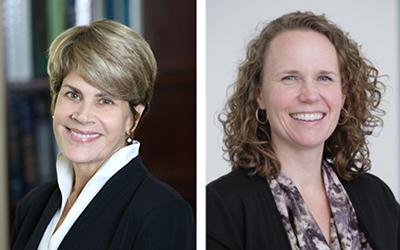May 5, 2020

Approximately 15% of U.S. adults report some degree of hearing loss. Untreated hearing loss is a huge issue for human health. It may lead to isolation, and it has been associated with serious conditions such as depression, anxiety, low self-esteem, dementia, reduced mobility, and falls. Hearing aids and other assistive devices can significantly improve the quality of life for many people, but only one in four adults who could benefit from hearing aids has ever used these devices, citing roadblocks such as cost, stigma, perception that they are not effective, and limited access to hearing health care.
As the lead federal agency supporting research and initiatives to prevent, detect, and treat hearing loss, the National Institute on Deafness and Other Communication Disorders (NIDCD), part of the National Institutes of Health, has made research on improving access to and affordability of hearing health care a priority over the past decade.
In 2009, the NIDCD started a coordinated effort to tackle accessible and affordable hearing health care by forming a working group. The working group created a blueprint for research priorities to enhance the affordability and accessibility of hearing health care for adults with mild-to-moderate hearing loss. This launched a focused effort by the institute that has, to date, inspired a dozen funding opportunities leading to the NIDCD’s support of 40 research projects on the topic.
In 2016, the National Academies of Sciences, Engineering, and Medicine (NASEM) published a consensus report, Hearing Health Care for Adults: Priorities for Improving Access and Affordability. The NIDCD co-sponsored this effort with other federal agencies and the Hearing Loss Association of America. The independent expert panel that conducted the study made recommendations for hearing health care reform, prioritizing the needs of adults with hearing loss. The panelists encouraged agencies, organizations, and professionals to improve access and affordability of services, develop innovative technologies, and better inform consumers about their choices for managing hearing loss.
One of the panel’s recommendations was for the U.S. Food and Drug Administration (FDA) to create and regulate a new category of over-the-counter (OTC) hearing devices, which could improve access to affordable hearing loss interventions for adults with mild-to-moderate hearing loss. In 2017, the president signed a law that directed the FDA to establish guidelines and quality standards for this new category of OTC hearing aids. A draft of these regulations is underway and expected to be released by August 2020.
NIDCD-funded research informed the expert panel’s recommendations as well as the policy changes around improving adult hearing health care. For example, preliminary research showed that people with hearing loss are able to independently adjust the settings on their hearing devices in response to changing acoustic environments, and, when given the ability to control their own hearing aid settings, they are generally more satisfied with the sound of the devices than with the audiologist-fit. In 2016, the first randomized, double-blind placebo-controlled clinical trial comparing an OTC delivery model of hearing aids with traditional fitting by an audiologist found that hearing aid users in both groups reported similar benefits, supporting the viability of a direct-to-consumer service delivery model (also see the follow-up study here).
The NIDCD also supports research that improves hearing aid technology for consumers. A small-business research grant funded by the NIDCD led to the first self-fitting hearing aid approved by the FDA.
As hearing researchers and clinicians, we are excited to witness the transformation of hearing health care for adults in the U.S. with mild-to-moderate hearing loss. We applaud the scientists who provided critical evidence leading to positive changes in public policy and in the marketplace. The NIDCD remains committed to improving the landscape of adult hearing health care, and encourages continued research in this area to fill remaining gaps.
This article is adapted from an original article published in The Hearing Journal’s May issue.
About the National Institute on Deafness and Other Communication Disorders (NIDCD): The NIDCD supports and conducts research and research training on the normal and disordered processes of hearing, balance, taste, smell, voice, speech, and language and provides health information, based upon scientific discovery, to the public.
About the National Institutes of Health (NIH): The NIH, the nation's medical research agency, includes 27 institutes and centers and is a component of the U.S. Department of Health and Human Services. The NIH is the primary federal agency conducting and supporting basic, clinical, and translational medical research, and is investigating the causes, treatments, and cures for both common and rare diseases.


